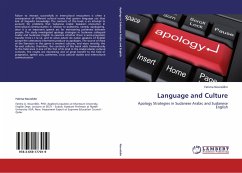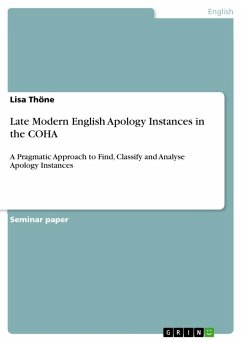Failure to interact successfully in intercultural encounters is often a consequence of different cultural norms that govern language use than lack of linguistic knowledge. The contents of this book is an attempt to account for problems that Sudanese Arabic Speakers encounter in intercultural communication in relation to politeness, namely, apologizing, since it is an important speech act for maintaining politeness between people. The study investigated apology strategies in Sudanese colloquial Arabic and Sudanese English to examine whether there is socio-pragmatic transfer from L1 to L2, and to what extent do native speakers of English accept the utterances informants produce as apologies. The source of most of the literature in this genre is western cultures, and more recently, the far-east cultures, therefore, the contents of this book adds tremendously to the field since it one of the first of its kind in the Arabic-Islamic cultural contexts. The results are interesting and ofgreat benefit to the field of pragmatics, speech acts, politeness, cross cultural studies and intercultural communication
Bitte wählen Sie Ihr Anliegen aus.
Rechnungen
Retourenschein anfordern
Bestellstatus
Storno








